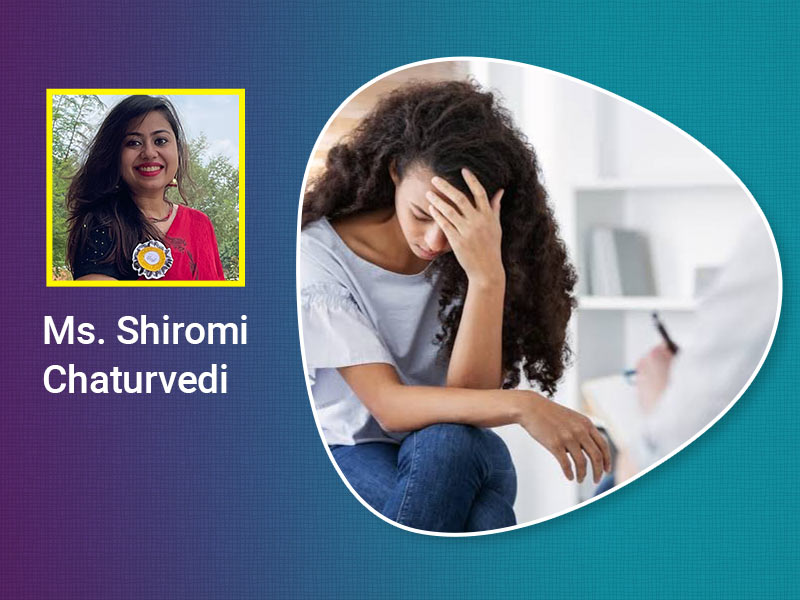
Anxiety disorders are experienced by a lot of people nowadays. However, occasional anxiety is normal and can occur sometimes, while people who experience frequent and severe anxiety disorders should surely get medical and therapeutical treatment. These individuals are persistently tensed and worried about day to day life. The anxiety feeling and panic can intervene with the daily tasks and are difficult to control for a long time. You should try and avoid the situations to prevent anxiety episodes. The symptoms of anxiety can start since childhood, teenage and continue till adulthood as well.
There are many types of anxiety disorders such as generalized anxiety disorder, social anxiety disorder, specific phobias and separation anxiety disorder. You can have more than one anxiety disorder. In some cases, anxiety can even be caused due to a health condition that requires medical treatment. World Mental Health Day is celebrated annually on October 10, around the globe to raise awareness about mental health issues. This year's theme is 'Mental Health in an Unequal World’. To honour World Mental Healthy Day 2021, Onlymyhealth editorial team talked to Ms. Shiromi Chaturvedi, TISS Alumna (Gold Medallist), Counselling Psychologist and Assistant Professor, Psychology at St Xavier’s College Jaipur, about the types of anxiety disorders and ways to manage them.
Types of anxiety disorders
The root causes of anxiety disorders are yet to be completely understood. Certain life events such as trauma can act as a trigger for anxiety disorders in people who are already experiencing anxiety episodes. Some individuals inherit these traits from their parents. According to Dr. Shiromi, here are the 5 main types of anxiety disorders:
1. Social anxiety disorder

Social phobia or also called social anxiety disorder is a type of an anxiety disorder that includes a lot of anxiety and self-consciousness in daily social situations. Social interactions can create a huge fear of speaking in both formal or informal situations. It can even trigger anxiousness while eating or drinking in front of other people. In social anxiety disorder, a person can experience the most severe form of all these symptoms whenever there are people around.
2. Panic disorder
Panic disorder is also another type of anxiety disorder that is associated with symptoms such as unexpected and repeated episodes of too much fear along with many physical triggers such as chest pain, racing heartbeat, shortness of breath, dizziness, nausea and abdominal pain.
Also read: Easy Yoga Postures to Fight Anxiety and Stress in your Daily Life
3. Obsessive compulsive disorder (OCD)
Obsessive compulsive disorder or OCD, is an anxiety disorder that triggers recurring and unwanted obsessions that can irritate a person from within. There can be repetitive thoughts such as washing hands, keeping track of the exact numbers and cleaning are often performed repetitively to avoid these obsessive thoughts.
4. Post traumatic stress disorder (PTSD)

Post-Traumatic Stress Disorder, PTSD, is an anxiety disorder that can occur after the traumatic event. It is mostly related to a terrifying event that can include physical injury or mental threatening. Terrifying events that can trigger PTSD are violent personal attacks, accidents, natural or human-caused disasters and military attacks.
5. Generalised anxiety disorder
Generalized Anxiety Disorder or GAD is one of the most common type of anxiety disorders that is characterized by long term or anxiety. It triggers symptoms such as too much worry and tension, even if nothing much has happened to provoke it.
Also read: Kill Anxiety Within Minutes with these Simple Yet Effective tricks
Expert tips to manage anxiety disorders
The are a number of therapies that can help in coping up with more than one type of anxiety disorder. Therefore, here are some ways to manage some groups of anxiety disorders:
1. Social anxiety disorder, panic disorder and generalised anxiety disorder

Cognitive behavioral therapy (CBT) is one of the best forms of psychotherapy that can help in treating anxiety disorders. CBT is a short term treatment for anxiety disorders that aims on teaching useful skills that can reduce your symptoms and eventually come back to the normal life that you were avoiding because of anxiety. CBT includes exposure therapy, in which the person is made to face their trigger object or situation and build confidence henceforth.
Also read: Anxiety: How Can You Overcome This Mental Disorder?
2. Obsessive compulsive disorder
You can calm your OCD by trying relaxation techniques such as mindfulness meditation and deep breathing. It is important to manage stress and avoid the major triggers of your compulsive disorder. It is possible to manage OCD symptoms without medication. Moreover, it is also good to distract yourself with your hobbies and interesting activities.
3. Post traumatic stress disorder
There are many effective ways to cope up with post traumatic stress disorder (PTSD). Cognitive therapy and behavioral therapy can play a major role in PTSD treatment. These psychotherapies can help in treating both children and adults. Even physical activity can help in dealing with post traumatic disorder.
With World Mental Health Day 2021 around the corner, these were the main types of anxiety disorders and some ways to manage them by an expert. Usually, anxiety disorders are associated with persistent or recurring episodes of sudden feelings of intense fear or worry that can reach a severe level within few minutes. If you are experiencing any anxiety symptoms, it is best to consult a psychiatrist.
Also watch this video
How we keep this article up to date:
We work with experts and keep a close eye on the latest in health and wellness. Whenever there is a new research or helpful information, we update our articles with accurate and useful advice.
Current Version